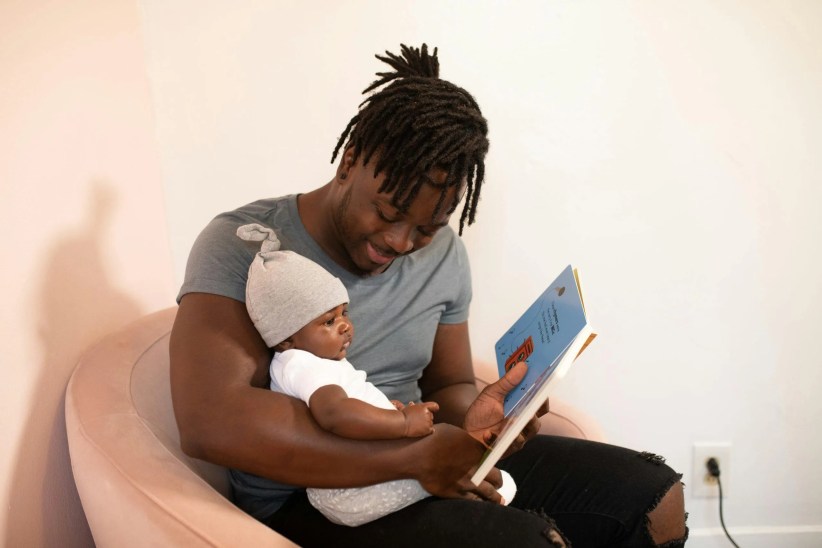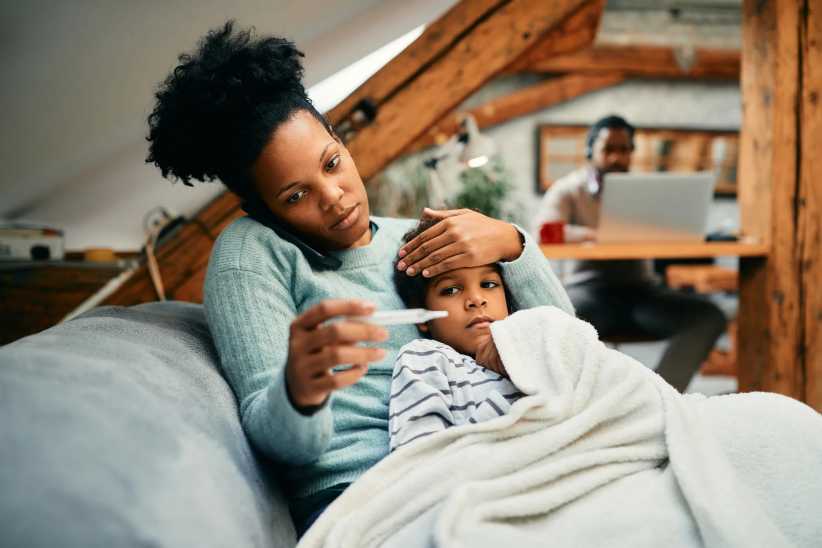
Trending Parenting Styles: Which One Is Right for You?
Parents and experts weigh in on what parenting styles work best for them.
We all know there’s no perfect parenting guide. Raising a small human is no easy feat, and there will be many questions along the way. While there are several tips and tricks when it comes to parenting, such as picking the nursery color or choosing the right school, one thing remains unclear: parenting styles.
Psst…Check out Nesting Parties Are the New 2025 Parenting Trend
What Are Parenting Styles?
Parenting styles first emerged in the 1960s, when psychologist Diana Baumrind identified three main styles of parenting: authoritarian, authoritative and permissive. The idea was to look at the different ways parents raise their kids, helping researchers understand how these styles affect things like discipline, warmth, communication, and expectations. The goal was to figure out which parenting strategies lead to the best outcomes for children.
“Balancing elements such as control, warmth, autonomy, and communication role models and illustrates what parenting can look like from several different lenses, allowing for adaptation when needed,” says Courtney Hulse, a NY-based Licensed Marriage and Family Therapist. “Understanding the benefits of various parenting styles can help parents choose the best approach for their child’s individual temperament, needs, and developmental stage.”
The conversation surrounding parenting styles even emerged on TikTok earlier this year, when Lighthouse parenting was brought into play. The parenting style consisted of being an anchor to your child, providing a stable source of guidance — like a lighthouse — while also giving them the freedom to grow and learn. Many took to the social media platform to share the positive effects of the new trend, thus unlocking a world of new ideas and practices for parents alike. Here are three current trending styles: lighthouse, horizontal, and intensive.
Lighthouse Parenting
Vanessa Gordon, CEO & Publisher of East End Taste, identifies closely with the lighthouse parenting style. Lighthouse parenting provides a more open approach and doesn’t have such rigid and strict boundaries. The style allows children to explore at their own will, while allowing the parent to serve as a lighthouse: an anchor they can return to if and when they need help or guidance.
Gordon has reported seeing growth in her children’s independence, confidence and communication skills.
“In conversations with others, I have noticed that they are not afraid to ask questions, make rebuttals, or express their own thoughts and opinions,” she explains. “I see my daughter picking up a book independently and reading quietly in her room or initiating an art project before she even considers going on the computer. My son does jiu-jitsu, and I particularly admire that he is eager to go to class a half hour or more early to help the class before his and the younger students in that class.”
While lighthouse parenting has a more lax feel to it, Gordon still implements her own rules. She does not allow any cell phone interaction with her children, and keeps television and electronics to a minimum, as she feels it can become a distraction to both her children and herself.
According to a survey conducted by Little Sleepies, over 70 percent of mothers find themselves comparing themselves to other moms on social media, and 18 percent reported that social media has negatively influenced their parenting style.
“This is one of the many reasons why I do not get involved with TikTok and try to limit even my own social media use as much as possible,” the mother explains. “I shut off the noise and focus on my children’s unique needs, values, and family goals while trusting my instincts as a parent. I rely on observation and maintaining open communication with my children.”
She credits her grandfather’s no-nonsense approach to encouraging her to raise her children with the same values, always being open and honest.
“I keenly remember hearing my grandfather tell me things like “taste it and tell me you don’t like it” when feeling unsure about trying a new food, or “learn to play the piano, you will never be bored,” she recalled.
But while she prefers to serve as a beacon, Gordon also remains firm in her rules and lets her kids know and understand the meaning of consequences.
“I would like my children to recognize their actions, be cognizantly aware and create that balance with their surroundings. I remind my children of the routine when they come home from school if they seem off task. If they need help with their homework, they must know to ask me but to first at least give it a try and try to solve the problem on their own. That said, I am teaching them how to research and find appropriate sources of information and always ‘dig deeper’ rather than find a quick answer (asking Alexa). I am not here to rescue them in that sense.”
Horizontal Parenting
Perhaps the most controversial style out of the four, horizontal parenting holds a unique approach to focusing on the well-being of the parent, while also supporting the enrichment and engagement needs of the child.
Rich Kingly, the CEO of Driveway King, has a mixture of lighthouse and horizontal parenting.
“My own upbringing was a mix of strict rules and a lot of love, but I knew I wanted to create a balance where my kids felt empowered to speak up and learn from their mistakes,” he explained.
Horizontal parenting often receives criticism, being described as a lazy form of parenting. The style is described as finding ways of keeping your kids entertained and engaged with you while you lie down. It’s a fun, low-energy way to connect with your kids without the guilt.
Back in 2017, Good to Know conducted a survey of 900 women, in which 78 percent said they experienced some type of guilt when it came to their children. With pressures high to work full time, be engaged in your work, yet also raise a tiny human and be there for them all the time, horizontal parenting serves as a sigh of relief for the clash between the two worlds.
Alexia McKay identifies closely with horizontal parenting. The mother of two under two lives a bit of a chaotic lifestyle, as since both her daughters are so young, their needs are demanding. She often finds herself putting her 19-month-old daughter in the crib, setting up her favorite toys and television show, while she tends to her one-year-old.
“I wasn’t necessarily seeking a parenting style,” she explained. “It’s just a system that works currently with my present day-to-day. She’s turning out to be very independent and less dependent on basic day-to-day activities. She enjoys playing with you but can also entertain herself. She’s very curious and observational, and we encourage that curiosity.”
Research shows that the curiosity fostered by such independence can have a positive effect on children. According to the National Institute of Health, when curiosity is triggered, a PACE cycle enhances memory encoding through increased attention, exploration, and information-seeking. McKay also believes that there is no exact method to the madness.
“Speaking as a millennial parent, many of our parents raised us the way their parents raised them. Their wisdom and insight are priceless, but some advice works and some does not. We take what works for our family,” she says. “There are some things we want to do differently than our parents, not to say their way was wrong. However, we are raising children in a totally different world than when we came up and we want to equip them with the knowledge and values they would need to thrive in this current society.”
Intensive Parenting
In a 2018 Cornell survey, around 75 percent of parents reported rating intensive parenting scenarios as “very good” or “excellent.”
“[Intensive parenting is] a highly involved approach where parents prioritize their children’s development and success above other aspects of life,” Francyne Zeltser, PsyD, a psychologist and clinical director of mental health and testing services at Manhattan Psychology Group, told The Bump.
The style is often correlated with coddling and is frowned upon for its hands-on involvement with your children to the point that other opinions, such as those of teachers and coaches can create unnecessary stress and pressure on the children. It may also stall their development, and ability to learn and think independently and learn from mistakes.
Hulse describes the style as harmful to children.
“Intensive parenting may promote increased pressure on a child. Children may feel overburdened or stressed by the high expectations placed on them, leading to anxiety, perfectionism, or burnout. The pressure to succeed in every area can create emotional and mental strain.”
Decide The Style That Works Best For You
Determining a parenting style is key to how your child grows. According to Hulse, it can impact their self-esteem, emotional regulation and ability to form healthy relationships.
“Our experiences, past and present, dictate how we relate to ourselves and the world around us,” says Hulse. “In essence, a child’s perceived/experienced relationship with their parent(s) affect both immediate and future outcomes.”
But, McKay reminds us that there is no guide to parenting.
“What works for one house may not work for yours. What I’m learning as a mom, is there’s no right or wrong way to parent. Do what works best for your household and your family and create your own tradition.”
Psst… Check out 7 of the Best Parenting Podcasts














